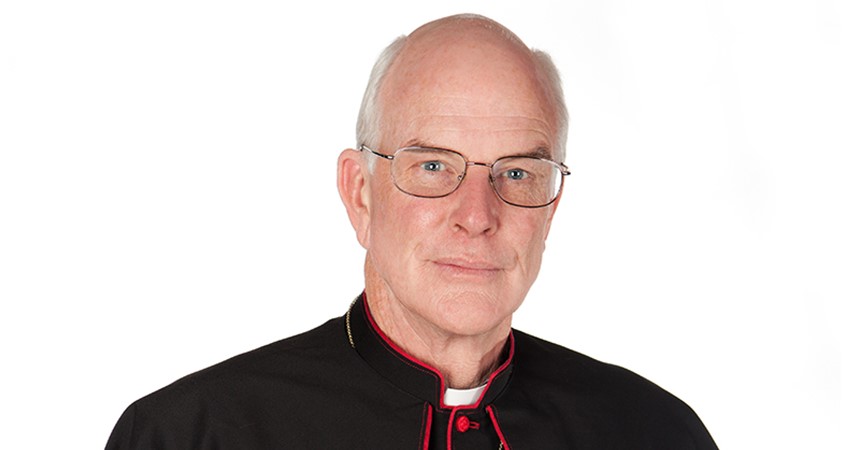I once read my way through Archbishop Polding’s (1835-1877) Lenten pastoral letters to the people of Sydney, and it was obvious how the ‘fast’ was being relaxed year by year. The thin end of the wedge, as I recall, was permission for breakfast, the famous ‘cold collation’ that could be taken in the morning before going to work. One year the good archbishop made another concession that I recall: people could have butter on their morning bread if they ‘could not stomach it without’. And so it went.
One thing that is striking in those nineteenth century instructions about Lent is that they focus almost entirely on the rules for fasting. True, Archbishop Polding would sometimes paint a picture of the family evening, with father gathering the tribe for the rosary and perhaps reading to the children from lives of the saints or a ‘bible history’ before sending them off to bed with his paternal blessing; but he seemed to think that this should happen all the time. Lent was just a good time to revive these practices if they had fallen off. What was characteristic of Lent was fasting from food. The other works, prayer and almsgiving, didn’t get much attention. And compulsory fasting was in decline.
For many years now, of course, the rules for Lent have been minimal. We sort-of fast, one big meal and one small, and abstain from meat, on Ash Wednesday and Good Friday, and do something penitential on the other Fridays. Clearly the rules don’t make for much of a Lent any more, and that may be a good and reasonable thing. What we choose to do may be of more value to us as a spiritual exercise than keeping the rules ever was. Our ‘choosing’, however, has also been changing in recent decades, in ways that are perhaps worth thinking about.
When I was a lad, the rules of fasting being already slight, Lent had become a time mostly of choosing to ‘give something up’. Chocolate and sweets were popular choices, but the big bucks were in movies and other outings. And the bucks involved were significant because the ‘giving up’ had been linked to Project Compassion.
What you saved on chocolate you gave to the starving of the third world.
Somewhere along the way, however, the notion of ‘giving something up’ came to be pooh-poohed by the more ‘spiritual’ among us. Lent was about repentance, metanoia, change of heart, not about giving silly little things up. This notion allowed us to do as we liked, so long as we were deeply in touch with our inner fast-er. Hmmm.
I came across a story somewhere recently from a young lad in North America who decided to spend a winter night out alone in the woods. Conscious that all his life he’d been kept safe and comfortable, he wanted to see if he could do it. Would he give up if it was too cold or scary? Could he stick something out that was tougher than his day-to-day? He was testing himself, perhaps against the American notion of the pioneers, perhaps against the fearlessness of the avatars on his PlayStation, who knows? Anyway, he did it.
And then I read the Sunday gospel from Mark: ‘The Spirit drove Jesus out into the wilderness where he was tested by Satan... He was among the wild beasts, and angels looked after him.’ And there it is: He was prompted, indeed ‘driven’, to it by the Spirit; he let himself be really tested; way out of his comfort zone, among the wild beasts, and he was sustained, as he could not have known without trying, by ‘the angels’, by the grace of God that goes with us everywhere. Jesus was doing very much what the young lad in America did, except that he was testing his readiness to face the tough stuff entailed in being faithful to his God. Which is pretty much what Lent is for, isn’t it? To what wild place of testing and grace will the Spirit drive you or me this Lent, I wonder?

